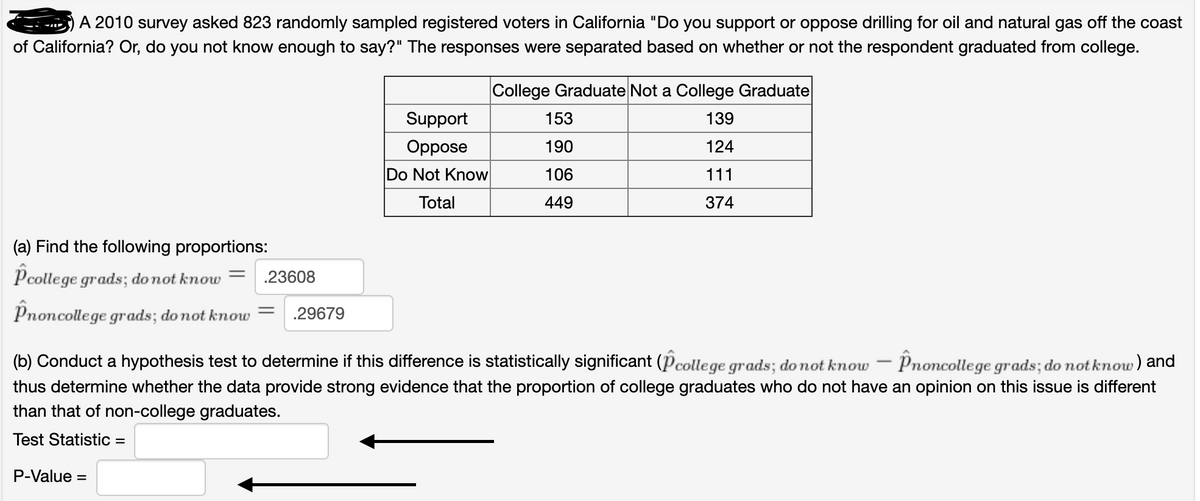survey asked 823 randomly sampled registered voters in California you support or oppose drilling Oll and natural gas Off the coa prnia? Or, do you not know enough to say?" The responses were separated based on whether or not the respondent graduated from college. ETT College Graduate Not a College Graduate Support 153 139 Oppose 190 124 Do Not Know 106 111 Total 449 374 the following proportions: = grads; do not know = .23608 llege grads; donot know = .29679 duct a hypothesis test to determine if this difference is statistically significant (Pcollege grads; do not know ¬ Pnoncollege grads; do notknow) an termine whether the data provide strong evidence that the proportion of college graduates who do not have an opinion on this issue is different at of non-college graduates. atistic =
Contingency Table
A contingency table can be defined as the visual representation of the relationship between two or more categorical variables that can be evaluated and registered. It is a categorical version of the scatterplot, which is used to investigate the linear relationship between two variables. A contingency table is indeed a type of frequency distribution table that displays two variables at the same time.
Binomial Distribution
Binomial is an algebraic expression of the sum or the difference of two terms. Before knowing about binomial distribution, we must know about the binomial theorem.

1)Given data is appropriate for single proportions.
2) given data is appropriate for difference of proportions.
A) p college do not know =
= -0.2875
p non college do not know =
= 1.5965
Step by step
Solved in 4 steps






